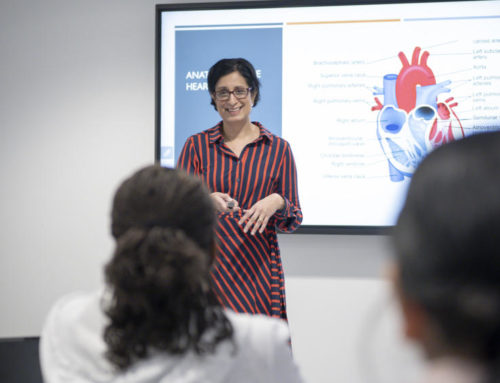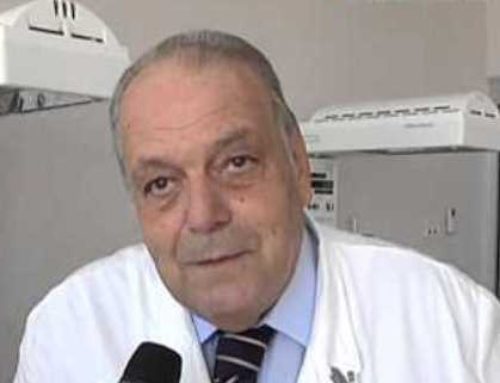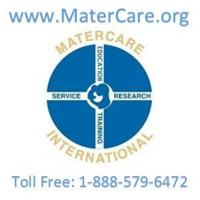3 October 1982
To the participants in the XV International Congress of Catholic Doctors
In the late afternoon of Sunday, 3 October, the Holy Father met the participants in the Fifteenth International Congress of Catholic Doctors in the Auditorium of the Palazzo Pio on Via della Conciliazione. Also participating in the meeting were Archbishop Eduardo Martinez Somalo, Substitute of the Secretariat of State, and Archbishop Achille Sivestrin, Secretary of the Council for the Public Affairs of the Church.
Upon entering the auditorium, the Pope was welcomed by the more than two thousand five hundred participants, representing seventy-one countries throughout the world. After the welcoming address by Prof. Pietro De Franciscis, the Pope delivered the following message.
1. Today it is cause of great joy for me to greet you who have come together in this important assembly, which is both the Fifteenth Congress of the International Federation of Associations of Catholic Doctors (IFACD) and the Sixteenth National Congress of the Association of Italian Catholic Doctors (AICD), so many and such distinguished representatives of medical science, that sublime form of service to mankind.
My joy is increased by the singular variety and, at the same time, the deep unity which characterize the assembly of yours: in fact, you come from every part of the world and work under the most diverse political and social conditions and situations, but at the same time you are linked by common Christian faith, which sustains and animates your service to life and to mankind.
To everyone my cordial greeting and my gratitude, with special thought to those who have organized this congress with dedication and enthusiasm.
I owe special thanks to Mons. Fiorenzo Angelini, who for many years has been the zealous and tireless leading spirit of the Association of Italian Catholic Doctors and who on this occasion took on a great burden of work to organize the Congress, whose every aspect he had taken care of with intelligence, overcoming various and complex difficulties and justly receiving recognition, support and participation.
No better place than Rome could have reproposed and strengthened a universal view of that service to life from which every clause of the code of medical ethics derives its justification. Rome, which is called the “Eternal City” because it seems to have existed forever, is open to that universal vista which makes it an obligatory and exalting reference point of civilization.
Congress theme regards basic human rights
2. The subject of your Congress takes up and synthesizes the problem of basic human rights, which is of great concern to me. During every age, man’s right to life has been recognized as the first and fundamental right, and as the root and source of every other right.
Life therefore is one of the highest values, since it comes directly from God, the origin of every life (Gen 2:7, Ez37.8-10). Man, as a living being created in the image of the Creator (Gen 1.26), is, by his nature, immortal (Gen 2:7; Wis 2.23).
I see that the concept of the totality of life is appropriately emphasized in the various parts of the Congress, in the reports, papers, subjects of discussion. This pleases me, since I hold such a basis to be of fundamental importance.
If, in fact, service to life defines the final aim of medicine, the limits of such service can be set only by the true and integral concept of life. In other words: the service to which you are called must include and at the same time transcend corporality precisely because this is not all there is to life.
The Bible, while recalling the frailty of the human condition, vulnerable as a blade of grass (Is 40:65), fleeting as a shadow (Job 4:2, 8-9), negligible as a drop of water (Sir 18: 10), emphasizes the boundless grandeur of life, which it identifies with good, while attributing to sin not only the stain of guilt, but the very penalty of illness and physical death. Through sin, man lost immortality for himself and for his descendants (Rom 5:12, I Cor 15: 21).
Such a broad view of the concept of life is confirmed by the way in which the redemption wrought by Christ is presented, which is seen as a recovery of life, reintroduction of life, gift of life in abundance (In 10:10). The “grace” is life in Christ, and to find life again means to reinsert oneself into the creative plan of God, who is by definition “the living God” (Deut 5:23: Mt 26:63, etc.).
For good reason, therefore, you distinguished doctors, convened here to study the many problems that relate to health, have placed emphasis upon the defence of life, inasmuch as in that supreme value are found the ultimate reasons which justify your commitment in the various areas of the respective specializations. Yours is the task of safeguarding life, of taking care that it evolves and develops throughout the span of existence, with respect for the plan mapped out by the Creator.
The increased knowledge of the phenomena which control life has greatly broadened the limits of medical science, whose service takes place in the areas of preventive, curative, rehabilitative medicine, with an inexhaustible effort to prepare, to defend, to correct, to recover vital functions, accompanying the human individual from the earliest stages of life up to the inevitable end.
In addition, today medicine is more than ever at the centre of community life, as a determining factor in educational tendencies, in assessment of the whole man, in the organization of related life styles, in the recovery of compromised or lost values, in offering to mankind an always new reason for hope.
Search without despairing of the truth
3. The Church, since its origin, has always looked upon medicine as an important support of her redemptive mission with regard to mankind. From the ancient xenodochia (houses for the care of the sick) to the first hospital complexes and up to the present, the ministry of Christian witness has progressed at the same pace as that of concern for the sick. And how can we not emphasize the fact that the very presence of the Church in missionary lands is distinguished by careful attention to health problems? This happens not in order to replace or substitute for the function of public institutions, but because service to the spirit of man connote be fully effective if not presented as a service to his psycho-physical unity. The Church well knows that physical illness imprisons the spirit, just as illness of the spirit enslaves the body.
On the other hand, it is not without significance that saints canonized by the Church – such as John of God and Camillus de Lellis, not to mention many others – have introduced important innovations in the field of an ever more alert and compassionate care for the sick. On the other hand, a careful study of Christian ascetical norms would reveal no minor contribution to the education of man for the total care of his physical and psychic health. And was it not a colleague of yours, Alexis Carrel, who maintained, for example, that prayer reconciles man with God and with himself, confirming it as a medicine of the spirit with documentable effects upon the total health of the person? (A. Carrel, La prière, Paris 1935).
In consideration of this, the Fathers of the Second Vatican Council, in their appeal to men of knowledge and science, affirmed with moving pride: “Your journey is ours. Your paths are never unrelated to those which are properly ours. We are the friends of your vocation as researchers, the allies of your toils, the leading spirits of your conquests and, if necessary, the comforters of your discouragements and failures. Therefore, we have a message for you too: continue to search without ever giving up, without ever despairing of the truth.” (Vatican II, Message to men of knowledge and science, 7 Dec. 1965).
In the recent Encyclical Laborem Exercens, I myself paid tribute to the importance of your role, insisting on the primary right of every individual to what is necessary for the care of his health and therefore to adequate health service (John Paul II, Laborem Exercens, n. 9). I would like to return to this subject in order to reiterate the duty that is incumbent upon medical science to make progress in order to improve the conditions and the environment in which work, that basic human activity, is carried out. If we want work to become always more personalizing, it is primarily necessary that its wholesomeness be guaranteed.
Spirit of service
Your commitment, distinguished gentlemen, cannot be limited to only professional correctness, but must be sustained by that interior attitude which is fittingly called “spirit of service”. In fact, the patient to whom you dedicate your care and your studies is not a nameless individual to whom the fruit of your knowledge is applied, but a responsible person who must be called upon to participate in the improvement of his health and the achievement of his cure. He must be put in the position of being able to make personal choices and not have to submit to the decisions and choices of others.
The appeal to “humanize” the doctor’s work and the places where it is practised is placed in these terms. Such humanization means the proclamation of the dignity of the human person, respect for his corporality, for his spirit, for his culture. It is your task to seek to discover ever more deeply the biological mechanisms which control life so as to be able to intervene in them, on the strength of a power over things, which the Lord has willed to give man. But in so doing, it is also your commitment to constantly keep within the perspective of the human person and of the requirements which spring from his dignity. In more concrete terms: no one of you can limit yourself to being a doctor of an organ or apparatus, but must treat the whole person, and what is more, the interpersonal relationships which contribute to his well-being.
“…providing for the safeguarding, the defence and the promotion of human life through the filter of the various cultures”
In this regard, the presence of scientists, clinicians, physicians and health workers from every part of the world inspires me to recall a grave and urgent problem: that of providing for the safeguarding, the defence and the promotion of human life through the filter of the various cultures. Inasmuch as he is the image of God, man is the reflection of the infinite countenances that the Creator assumes in his creatures: countenances sketched by the environment, by social conditions, by tradition, in a word, by culture. It is essential that in the various cultural contexts the brilliance of that reflection be not dimmed, nor the features of that image disfigured. It is the task of every citizen, but especially of those who, as you, have direct social responsibilities, to work for the recognition and effective prevention of possible forms of intervention upon man which appear to be in contrast with his dignity as a creature of God.
In order to do this, individual action is not sufficient. Collective, intelligent, well-planned, constant and generous work is required, and not only within the individual countries, but also on an international scale. Coordination on a world-wide level would, in fact, allow a better proclamation and a more effective defence of your faith, of your culture, of your Christian commitment in scientific research and in your profession.
5. There is a message which I sense in your Congress and which must be made ever more explicit through your individual and collective action. It is the appeal to the social community and those responsible for it that the limitless resources consumed in the technologies of death be transformed into the support and the development of the technologies of life.
Because of a mystery rooted in the complexity and the frailty of the human heart, the option for good and for evil often makes use of identical instruments. Technologies which could work for good are at the same time capable of working immense evil, and only man is the arbiter of their application and their use.
In addition, there are numerous projects in the field of scientific research which have long been awaiting better support in order to be carried on, but instead have been set aside because of lack of funds. Laboratories, from which a world of hope is awaited to combat illnesses particularly widespread in our age, seem to be languishing, certainly not through the fault of well-prepared men, but because the necessary financing is diverted to ways of destruction, war and death.
Nor is the problem different with regard to some other very grave phenomena of our age. Allow me to point out in particular the problem of malnutrition and underdevelopment. Vast areas and entire populations suffering from poverty and hunger emerge today on the demographic map. While rich nations suffer from metabolic illnesses due to overfeeding, hunger still cuts down its victims, especially among the weak, children, and the aged.
It is not admissible to remain silent and passive in the face of this tragedy, especially when the possible solution can be seen in a wiser utilisation of available resources. May your voices join those of all persons of good will in calling upon those responsible in the public area for a more determined commitment to place in the forefront the immediate and concrete resolution of this tremendous and dramatic problem.
Catholic is a qualification
6. Yours is a congress of Catholic doctors. “Catholic” is a qualification which requires you to witness to faith by word and example in a life which transcends earthly events and is part of a superior and divine plan.
This has an importance which is not secondary in the exercise of your profession. In fact, experience teaches that man, needing preventive as well as therapeutic help, reveals needs which go beyond the organic pathology taking place. From a doctor he expects not only an appropriate cure – a cure which, on the other hand, sooner or later will inevitably prove to be insufficient – but the human support of a brother who knows how to share with him a view of life in which even the mystery of suffering and death finds meaning. And where could such a reassuring answer to the supreme questions of existence be drawn if not from faith?
From this point of view, your presence beside the sick person is linked to that of those-priests, religious and laity-who are committed to the pastoral care of the sick. More than a few aspects of such pastoral care correspond to the problems and duties of the service to life carried out by medicine. There is a necessary interaction between the practice of the medical profession and pastoral action, since the one object of both is man, taken in his dignity as a child of God, as a brother as needful of help and comfort as we are. The areas of such possible and necessary interaction are diverse. Among them I wish to call to your attention that of the family, often tried – especially today – by profound difficulties and called to contend with the difficult problem of responsible parenthood, lived in respect for the divine laws which govern the transmission of life and at the same time for those which foster authentic conjugal love.
Consequently, in the hope that sincere availability for rapport, dialogue, for constructive collaboration grow among all those who work in the health field, I point to the supreme example of Christ, who was a physician of the spirit and often of the body for all those he encountered along the paths of his earthly pilgrimage: Christ, above all, who agreed to drink to the dregs the cup of suffering. Taking on our human condition and experiencing pain unto death, and death on the cross without any guilt, Christ became at the same time the image of illness and health, of defeat and salvation, so that in him all those on earth and in every age who must contend with suffering would have hope founded in him.
“May Christ in the mystery of his Passion and his Resurrection remain before the eyes of your mind”
Therefore, practitioners of the art of medicine, may Christ in the mystery of his Passion and his Resurrection remain before the eyes of your mind. May he constantly enlighten you on the dignity of your profession and in every circumstance inspire in you those attitudes and actions which steadfast consistency of faith indicates and demands. Mankind today does not only ask for the affirmation of principles, but the contribution of signs, of credible proof.
May the Virgin Mary, Our Lady of Wisdom, who everywhere is invoked as health of the sick, guide your paths and grant that you may give to your service to life those qualities of goodness, understanding, availability and dedication which saw in her their highest fulfilment.
With these feelings I impart to you and to all those you represent here my heartfelt intercessory Apostolic Blessing for every desired heavenly gift.
John Paul II







